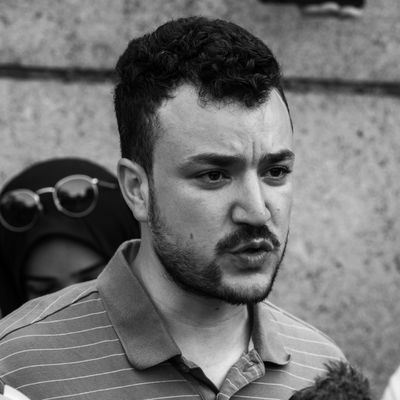
An immigration judge in Louisiana ruled on Friday that the Trump administration may deport Mahmoud Khalil, the Palestinian activist whom the government has targeted for helping lead Columbia University’s Gaza-solidarity student protests last year.
Khalil is married to an American citizen and had a green card. The Trump administration has not accused him of any crime, and he has never been convicted of a crime that could put his legal status at risk. Instead, Secretary of State Marco Rubio has argued that an obscure 1952 statute gives him the authority to deport anyone he believes “would have potentially serious adverse foreign-policy consequences” for the country were they to remain in the United States.
In a two-page memo to Judge Jamee Comans this week, Rubio argued that Khalil should be expelled from the U.S. solely on the basis of his beliefs. He added that while Khalil’s participation in Columbia’s student protests was “otherwise lawful,” allowing him to remain in the U.S. would undermine government efforts “to combat anti-Semitism around the world and in the United States, in addition to efforts to protect Jewish students from harassment and violence in the United States.”
Khalil’s case drew nationwide outrage after he was arrested at his university-owned apartment building by plainclothes Homeland Security agents on March 8. His wife, Noor Abdalla, who is expected to give birth this month, was the only witness to the arrest and didn’t know where her husband had been detained until nearly 48 hours afterward. President Donald Trump praised the detention in a Truth Social post and warned it was the “first of many to come.” Since then, international students across the country have been detained by Immigration and Customs Enforcement agents, and the administration has revoked the student visas of hundreds of others in at least 24 states.
But Khalil, who is being held at the LaSalle Detention Facility in Louisiana, won’t be immediately deported as a result of this ruling. His legal team has until April 23 to request a stay in his deportation, Judge Comans said. She added that if Khalil’s lawyers don’t meet the deadline, he will be deported either to his birthplace of Syria or to Algeria, where he is a citizen.
After the ruling, Khalil told the judge, “I would like to quote what you said last time that there’s nothing that’s more important to this court than due-process rights and fundamental fairness. Clearly, what we witnessed today, neither of these principles were present today or in this whole process.”
The 30-year-old added, “This is exactly why the Trump administration has sent me to this court 1,000 miles away from my family. I just hope that the urgency that you deemed fit for me is afforded to the hundreds of others who have been here without hearing for months.”
